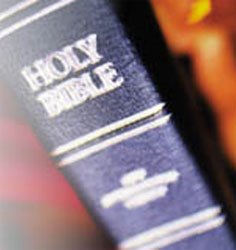 C.S. Lewis in The Screwtape Letter writes, “Prosperity knits a man to the world. He feels that he is finding his place in it, while really it is finding its place in him.”
C.S. Lewis in The Screwtape Letter writes, “Prosperity knits a man to the world. He feels that he is finding his place in it, while really it is finding its place in him.”I find myself constantly thinking about selfishness and self-centeredness and how those two things continue to manifest themselves in my life, our culture, the church and my kids. When it comes to money and possessions, we’ve had so much for so long that we don’t even realize how much we really have.
Followers of Jesus, who should be leading the cultural charge against self-centered materialism, are prone to follow the lead of the culture rather than Christ on this matter. When it comes to integrating our faith into the material and financial part of our lives, we’re having difficulty. I wonder if the most serious problem facing the church today is materialism? I wonder if materialism is the least-recognized and most-unaddressed sin of believers, of which I am one.
Tom Sine says, “all seem to be trying to live the ‘American Dream’ with a little Jesus overlay. We talk about the Lordship of Jesus, but our career comes first. Our house in the ‘burbs comes first. Then, with what’s left, we try to follow Jesus.”
Some of you will remember Bruce Wilkinson’s little book, The Prayer of Jabez: Breaking Through To The Blessed Life. Many people are familiar with this bestseller that focuses on two verses found First Chronicles. If you haven’t heard of it, you’ve either been asleep or you’ve failed to interact with one of the millions of Christians whose fervor for Jabez and his prayer has led them to lay out millions of dollars to purchase the various versions of The Prayer of Jabez and other Jabez Junk. “Jabez fever” swept through the church as everywhere you turned someone else was telling you with “Amway-like” enthusiasm about how they were embracing the prayer, praying it daily, and expecting God to release great blessings into their life.
I wonder about this prayer of “bless me and enlarge my territory!” and to “let your hand be with me, and keep me from harm so that I will be free from pain” was a new and popular way for many to ask God for more stuff and an easier life. Could it be that an obscure Old Testament passage was being marketed to a 21st century church that was eager to find Biblical justification to have more? Perhaps the Jabez phenomenon and its rapid embrace as a mechanized and magical mantra is the greatest indicator of how self-centered and materialistic we’ve become. It plays well in our wealthy, market-driven, consumer-oriented, narcissistic North American Christian culture.
OK, I ask God for blessing and protection every day. To be honest with you, I even prayed the prayer of Jabez! But while I oftentimes catch myself wanting more stuff, the fact is that I already have far more material “territory” than I need. Why is it, though, that third-world Christians who scrape for food, clothing and shelter while living in material poverty have a fervor, joy, selfless depth and richness to their faith that puts us (me) to shame, while we walk around prone to dissatisfaction with what we already have, desiring more, and consumed with wanting to live a life free from God’s gift of pain?
There is another Old Testament prayer that seems to be worth embracing, but I am sure no one will make millions of ‘ka-ching’ off it. I have run across it numerous times in my readings of Proverbs 30. But something jumped out at me like never before. The author Agur prays: “Two things I ask of you, O Lord; do not refuse me before I die: Keep falsehood and lies far from me; give me neither poverty nor riches, but give me only my daily bread. Otherwise, I may have too much and disown you and say, ‘Who is the Lord?’ Or I may become poor and steal, and so dishonor the name of my God” (Proverbs 30:7-9). All Agur wanted was to speak the truth, and to have just what was necessary for him to remain committed and obedient to his God. Agur understood human nature and he knew his weakness. In wisdom, he prayed to be rich in faithfulness. I’m not sure Agur’s prayer would sell books and junk in today’s Christian market, that’s too bad, it’s a challenging prayer that shakes up our attitudes and reflects God’s will, way and priorities. Actually, it is a God-centered prayer that focuses on thy will and not my will, as we ask God to bless by giving and withholding as He pleases.
Why is it that in the New Testament that money and wealth is talked about more than and hell combined? Why is it that there is more said about money than about prayer? Why did Jesus say: “do not store up for yourselves treasures on earth, where moth and rust destroy, and where thieves break in and steal. But store up for yourselves treasures in heaven, where moth and rust do not destroy, and where thieves do not break in and steal. For where your treasure is, there your heart will be also.” Is it because of the dangerous and consuming grip this reality puts on us? The sad result of our prosperity and desire for even more is that we’ve become even more prosperous and desiring of even more. All the while, we fool ourselves into believing that we are entitled to it all and that we are walking the path of discipleship.
Thoughts?


